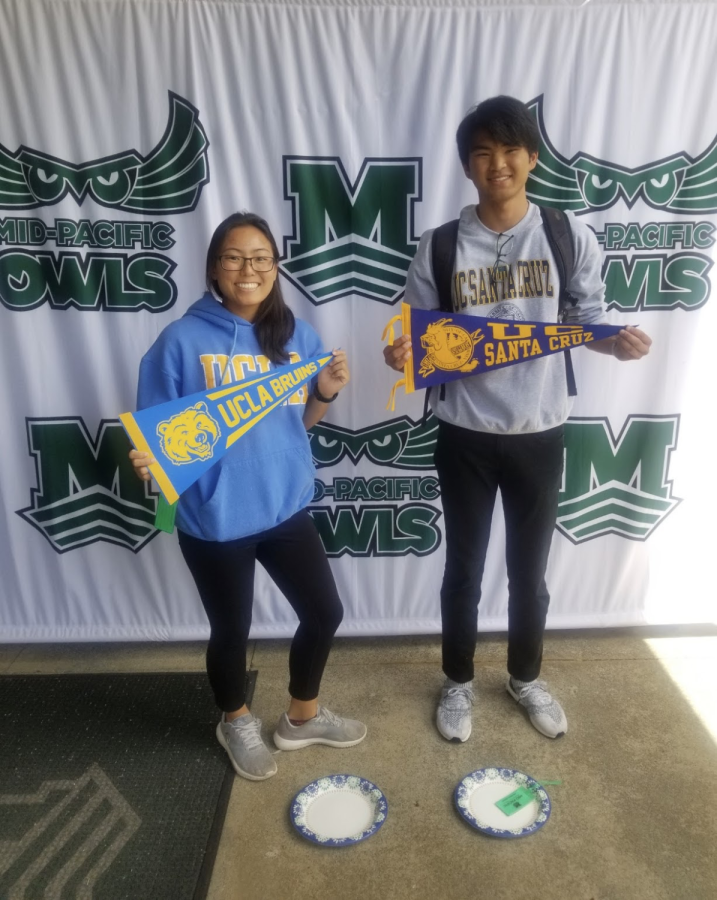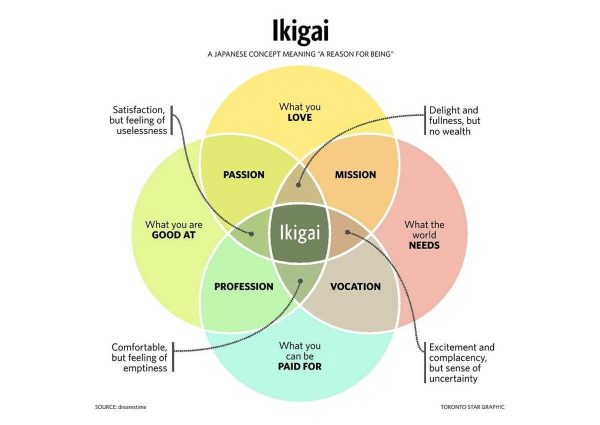Finding passion for college careers at Mid-Pacific
Mid-Pacific seniors pose for pictures during College signing day in 2019.
As a college preparatory school, Mid-Pacific develops students’ academic passions in various ways, from experimental programs to traditional classes, which may benefit them in choosing a suitable major when they go to college.
However, roughly 40% of Mid-Pacific juniors and seniors remain unsure of their college majors according to a recent Na Pueo poll with 48 participants.
This trend is also observed throughout the US. According to a Butler University study, 20%-50% of incoming freshmen were undecided. Senior Josephine Rowan attributes the number of undecided majors to students’ youth.
“I think it’s because everybody doesn’t know what they want to do yet. We are still really young,” said Rowan.
There are also external forces that may confuse and influence students on what they want to study.
“There’s also pressure from parents and other students to maybe go into a specific major that maybe makes more money,” said Rowan.
However, the school’s objective is not to make students choose their major, but to develop their interests.
“What we are trying to do is steer students to focus in on their strengths and interests so that things will sort of fall into place for them,” College Counselor Derrick Kang said.
Electives and unconventional classes are sometimes beneficial for students to find out what they enjoy doing in the academic world.
“I think that a lot of people didn’t realize what they wanted to do and then they joined journalism or they joined dance and then realized they have a passion for that,” said Rowan.
The administration is constantly looking to see what individuals enjoy studying and aims to meet that passion with new classes.
“Psychology was a career interest as well so we started offering courses in IB psychology,” Kang said.
While interest is a central part in the decision of college majors and careers, a student’s personality type and academic strengths are equally important.
Psychology and history teacher Dr. Henry Hail wanted to study journalism, but ended up going into sociology.
“The problem is though, I don’t think I really have the personality for it [journalism], and it was more of a fantasy rather than realistic, because journalism requires you to be pretty thick-skinned and intrepid,” said Hail.
A student can learn if they possess particular strengths for a field by taking specific courses such as entrepreneurship. Mid-Pacific’s entrepreneurship course is not an elective, but rather a humanities class that aims to teach valuable business skills that wouldn’t be taught in a conventional class.
“[Entrepreneurship is] showing you how to be an entrepreneur which I think kind of exposes people to job markets,” Rowan said.
Aside from courses like entrepreneurship and psychology, hands-on activity out in the community can be just as helpful.
“I think hands-on experience, of any kind, even if it’s just volunteering, is very valuable in teaching you about what you like to do, who you like to work with, and what kinds of environments you like to be in,” said Hail.
It’s not necessary for high schoolers to know what they’ll study in college, however, knowing what catches their eye is. Mid-Pacific has a plethora of electives to choose from for any student along with extracurriculars.
“I can’t think of another school here in Hawaii that’s gonna offer the level of dance, theater, music and art we offer. So for that particular group of students they are gonna be very well prepared for the programs and majors they are interested in,” said Kang.






